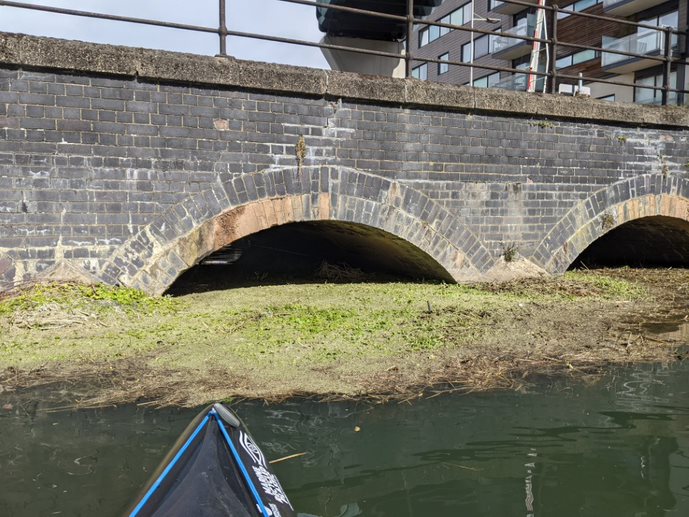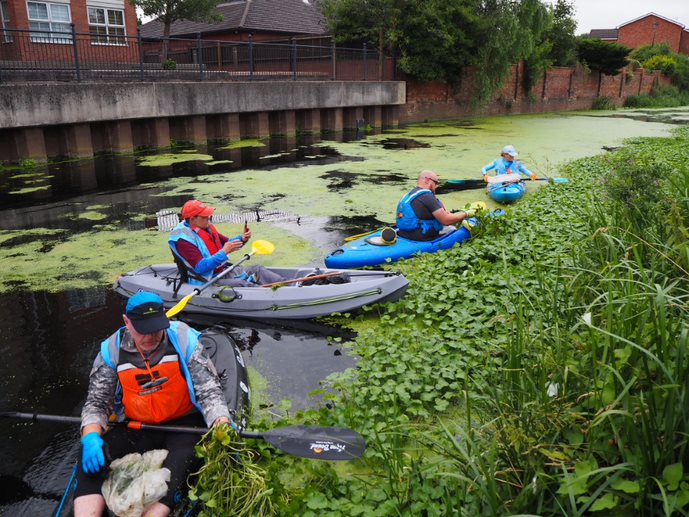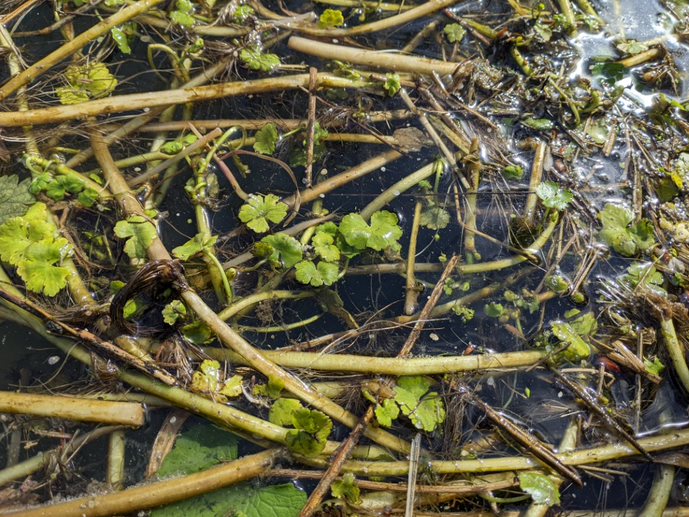Calls for river users to help war against invasive water plant

Environmental charity Keep Britain Tidy, in partnership with the Environment Agency, has launched its #PennywortAlert scheme for 2023 as it urges the public to report sightings of the harmful aquatic weed, floating pennywort, on waterways.
Floating pennywort (Hydocotyle ranunculoides) can grow up to an astonishing 20cm per day in late summer.
It forms dense mats of kidney-shaped leaves on the water’s surface, depleting oxygen levels, blocking out vital sunlight for our native aquatic plants and, ultimately, threatening fish, invertebrates, insects and our wider native ecosystems.
The weed is also a menace for river users – stopping angling, water sports and river and canal navigation, often clogging up boat propellers. It can also block key river infrastructure, including weirs, sluices and pumps, which can lead to flooding.
The weed has spread rapidly into UK waterways since it was introduced into this country from America in the 1980s as an ornamental garden pond plant. It has been banned from sale since 2014 in the UK and it is now against the law to cause floating pennywort to grow in the wild.

The floating pennywort costs millions to public and private organisations, requiring physical removal from the water with machinery, which is costly and time-consuming.
Keep Britain Tidy’s RiverCare & BeachCare programme, which supports volunteers across East Anglia to care for their local waterways, has been awarded funding to raise public awareness of floating pennywort and assist their existing volunteer groups who support the work of bigger organisations, such as the Environment Agency, by removing regrowth.

The #PennywortAlert hashtag on social media to drive awareness of its appearance, the steps people should take if they spot it and volunteers’ current efforts, and people are being encouraged to share the posts to help spread the word.
“Damage to our waterways caused by floating pennywort is well documented, as is the knock-on effect to the communities of people who live near and enjoy our rivers for recreation,” says Lynsey Stafford, who manages Keep Britain Tidy‘s RiverCare & BeachCare programme in the East of England. “It is highly invasive and incredibly harmful to our environment.
“We need to do all we can to halt its spread. To do that, we need the public to be on the lookout.
“While we continue to work with partners to identify and tackle areas of large growth, our volunteers are able to spot new areas and tackle regrowth.
“Keep Britain Tidy has been campaigning to protect the environment for generations. Those who think it is someone else’s problem are wrong – it’s everyone’s problem, and we can all play a role in protecting it.”
Members of the public in the Anglian Water region are being encouraged to report sightings of floating pennywort to the RiverCare Facebook page.











